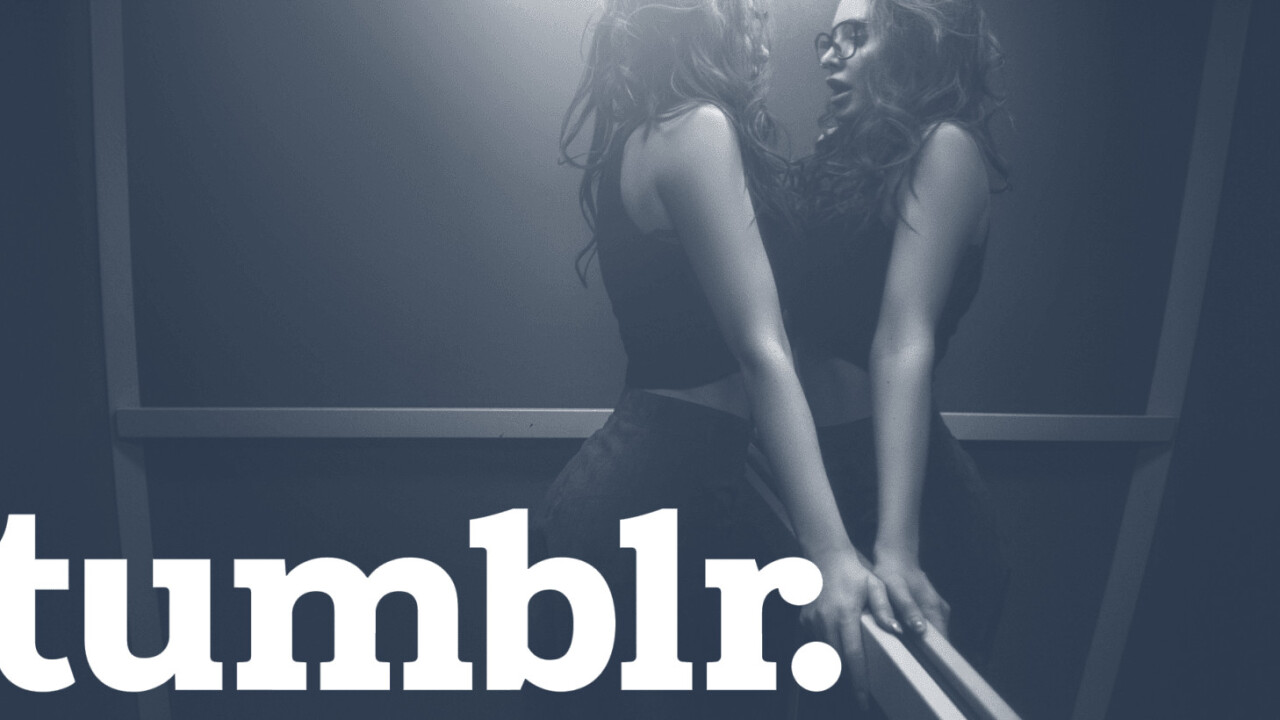
After graphic images of child sex abuse appeared on Tumblr in November, the app was quickly removed from Apple’s App store (it remained on Google Play). And rightfully so. Child sex abuse imagery has no place online, and Apple was well within its rights to stop distributing an app containing it. Then, in a surprising turn of events, Tumblr invoked the nuclear option, announcing earlier this week that it would ban adult content altogether.
In a blog post, CEO Jeff D’Onofrio wrote that “there are no shortages of sites on the internet that feature adult content.” Or, put simply, you can get your rocks off elsewhere.
This led many, including our own Rachel Kaser, to wonder whether the move would spell the end of Tumblr, a platform not built to showcase pornography, per se, but one that certainly carved out a niche for itself doing just that.
After all, a quarter of Tumblr users are there just for porn, according to a 2017 study featuring 130 million users — about half of Tumblr’s user base.
“At the time of the study, roughly 30 million active accounts were consuming adult content, either re-sharing it or following the accounts of these producers,” Luca Aiello, one of the study’s authors told Motherboard. “I expect this audience to experience a noticeable drop in engagement: some of them will just churn out, many of them will likely reduce considerably the time they spent on the platform [after the ban].”
But it’s not that simple. Tumblr didn’t carve out a niche for adult content in the same way Pornhub did. And while there’s significant overlap, one must consider the way Tumblr grew its base of porn-hungry consumers.
For many, it was a place to find like-minded individuals who shared their kinks, a sex-positive LiveJournal, of sorts, for whom they could discuss sex openly, and anonymously, with others who might better understand them. Others were sex workers, fleeing the puritanical ruling class who’d shunned them from sites like Craigslist and Backpage where they could safely make a living. Still others found solace in the friendships they made on the platform in both pornographic and straight-laced communities, friendships that they might not have made in the outside world due to disability, or a shy predisposition.
As different as these users are, they share one thing in common: the grassroots growth of organic communities that led to their arrival at the same place, at the same time.
Tumblr offered a way for like-minded individuals to connect, through a means of expression they understood, and appreciated, in ways you might not have. Sometimes that was through cutting and uploading semi-vanilla pornography as GIFs. In other cases it was the types of porn that stretch the imagination of even the most openminded individuals, like “vore” — a sexual fetish characterized by the desire to be consumed, literally, by one’s partner or partners. Or maybe they just had a preference for a particular hair color, height, weight, ethnicity, or clothing style.
In kink, Tumblr’s sex-positive communities found unity.
And while it hurts for each of them to lose the only place where some felt they belonged, the shutdown disproportionately affects women. Sex workers, obviously will feel the sting of missed revenue and a safe place to connect, but so will the kink-seeking masses turned off by mass-produced porn.
Women, though, were Tumblr’s ruling class. And unfortunately, they’ll feel the brunt of the closure.
According to the aforementioned study, female users made up around 72 percent of Tumblr’s user base. And while not all of them were there for porn, young women between the ages of 20 and 25 were consuming it at a much higher rate than men.
This led some to an entirely new means of expression. According to adult entertainer Vex Ashley, in an interview with Broadly:
What I saw was there weren’t many people who were using porn as a creative medium for ideas. My boyfriend and I started making porn music videos; we’d take a piece of music and shoot some naked, writhing bodies, cut it to the music, and upload it onto sites like Tumblr.
For others, the relationship was more consumption-driven. But whether women went to Tumblr to create, or consume, to interact, or to admire from a distance, it’ll soon be gone.
While there’s certainly an argument to make about Apple, Google, Facebook, and others homogenizing the internet; it’s not the argument that matters most. When Tumblr’s gone, so is the safe space that women, by and large, so carefully curated for people just like them. Their place to share, consume, and discuss art, in the form of pornography, is now gone.
We haven’t made a dent in removing porn from the internet, but we’ve managed to steal the place where women commonly engage with other sex positive individuals; where transgender individuals may feel most secure; and where inclusivity was part of the unwritten contract by all who shared this kink-friendly home.
As Tumblr closes its door on pornography, you have to wonder about the marginalized groups who called these communities home.
Get the TNW newsletter
Get the most important tech news in your inbox each week.




